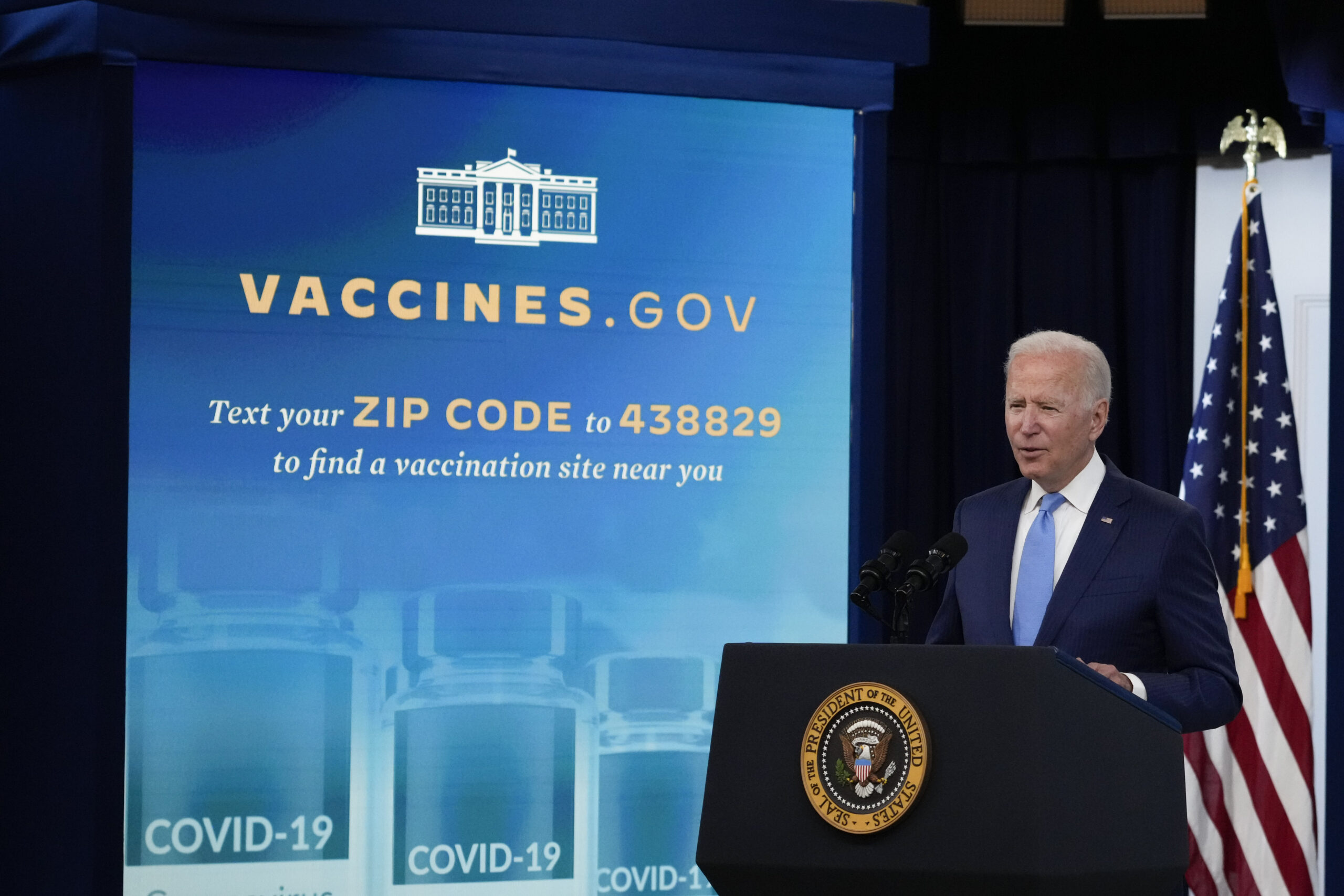A sweeping vaccine mandate announced by President Joe Biden this week puts the onus on large employers to ensure their employees are vaccinated, but it likely won’t make much of a splash in vaccine-friendly San Francisco.
Vaccine requirements are already common at San Francisco’s major private employers, including Salesforce, LinkedIn and Airbnb, all of which employ thousands of people locally. The city of San Francisco, which employs about 35,000 people, will also begin enforcing a vaccine mandate in the coming weeks.
Despite the aggressive approach to vaccine requirements, only a fraction of San Francisco employees at major companies have returned to work, and the city continues to lag far behind other major U.S. metros in re-populating its business district.
Data from the building access firm Kastle Systems shows that offices in the San Francisco metro area were at 19% occupancy in the first week of September, compared to an average of 32% among all major U.S. cities.
The new federal mandate instructs private companies that employ more than 100 workers to either require vaccines, or offer paid time off for weekly testing. The rule also applies to federal contractors and employees of health facilities that receive funding through Medicare and Medicaid.
The mandate, which could affect up to 100 million workers, is the most aggressive effort yet by the federal government to get more Americans vaccinated. About 62% of Americans have received at least one dose of a vaccine, but the Delta variant has driven a COVID surge that’s killing more than 1,000 people per day and threatening a tenuous economic recovery.
San Franciscans have largely embraced vaccines, and likewise, many of the city’s large companies have embraced vaccine mandates.
“Due to rising cases of the Delta variant and recent changes in public health and government guidance, we’re requiring proof of vaccination for all employees, contractors and suppliers working at a LinkedIn office in the U.S.,” said Alaia Howell, a spokesperson at Linkedin, which employs about 2,200 people locally according to the San Francisco Business Times.
LinkedIn is expecting fewer people to return to the office full-time, and recently withdrew an earlier target of requiring workers to return 50% of the time. The company says that 87% of its workers wish to be in the office at least some of the time, but that it won’t apply a “one-size-fits-all” policy and rather let individual work teams determine the best model.
Others are taking a similar approach, requiring vaccines for any workers returning in person but offering flexibility to employees who have acclimated to remote work.
Airbnb, which employed about 2,300 people in San Francisco prior to the pandemic, is giving employees the option of working remotely until September 2022, and plans to reopen offices when deemed safe. Employees with challenging work-at-home situations will be first welcomed back, according to the company.
Chris Cherry, director of global safety and security at DoorDash, said that its offices are open at 50% capacity alongside vaccine and masking mandates. Few of its roughly 1,600 local employees are choosing to come in voluntarily right now, he said.
“In July 2021, we shared that we will be remote until 2022, when we’ll ask corporate employees to return to offices 2-3 days a week under a hybrid model,” said Cherry. “This is a dynamic situation that we’ll continue to evaluate, making educated decisions based on the most up to date guidance and information we receive.”
Pinterest, which employed roughly 1,500 local workers before the pandemic, also requires vaccines for those returning in-person, among other health protocols. The company has reopened offices at 15% capacity and attendance is “completely voluntary,” said a spokesperson.
The staying power of remote work carries major implications for San Francisco, particularly downtown businesses that rely heavily on commuters and generate an outsized portion of the city’s sales tax revenue.
Tech firms, in particular, may be more inclined to offer remote work in part because they compete with one another for talent.
An informal survey by Blind, a popular discussion forum for tech professionals, suggested that tech workers by and large prefer a remote work option: A majority of employees at tech giants like Amazon, Microsoft, Google and Facebook said they would prefer a permanent work-from-home allowance over a $30,000 pay increase.
Remote work “creates a major risk for the city’s economy,” said San Francisco’s chief economist Ted Egan at a hearing this week.
